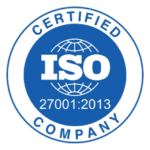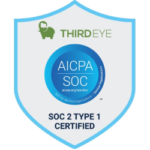Government, An Integral Partner For Exploring Artificial Intelligence

On June 24, an upcoming conference will explore the implications of artificial intelligence (AI) in the public sectors. AI World Government will gather leaders across government, industry and academia to discuss the challenges and potential solutions of AI in automating our expanding digital world. The event is described as “a comprehensive three-day forum to educate and inform public sector agencies on the strategic and tactical benefits of deploying AI and cognitive technologies.”
The topic of AI is garnering attention in government and industry. Research and consulting firm Gartner describes AI as a “technology that appears to emulate human performance typically by learning, coming to its own conclusions, appearing to understand complex content, engaging in natural dialogs with people, enhancing human cognitive performance or replacing people on execution of non-routine tasks.”
AI can be a game-changer for accelerating cognitive capabilities and economic benefits. McKinsey & Company predicts a $5 to $7 trillion potential economic impact by 2025 from automation of knowledge work by intelligent software systems that can perform knowledge work tasks from unstructured commands.
The potential of AI knows little bounds and can impact every aspect of our lives in health, transportation, finance, and security (among just several verticals), especially with the expansion of connectivity and the Internet of Things.
Although industry is bringing AI to the consumer, government also has an integral role in all of those AI vertical areas and descriptions.
Government research in the areas of AI and its potential applications is not new, but the evolution of computing technologies has accelerated the reality of its development and implementation.
In government, the Defense Advanced Research Projects Agency (DARPA), Intelligence Advanced Research Projects Activity (IARPA) and many of the National Labs are involved in researching AI uses for national security, law enforcement, healthcare, transportation and commerce. In fact, the Pentagon played an instrumental role in the creation of one of the best known examples of AI, the self-driving car. As far back as 2004, DARPA hosted a series of autonomous vehicle “Grand Challenges.” The challenges spurred a wave of commercial R&D efforts.
More recently, DARPA announced a multi-year investment of more than $2 billion in new and existing programs in artificial intelligence called the “AI Next campaign.” DARPA director, Dr. Steven Walker, explained the implications of the initiative: “we want to explore how machines can acquire human-like communication and reasoning capabilities, with the ability to recognize new situations and environments and adapt to them.”
The Department of Defense (DoD) in cooperation with DARPA created The Joint Artificial Intelligence Center (JAIC). The mission of the JAIC is to “transform the DoD by accelerating the delivery and adoption of AI to achieve mission impact at scale. The goal is to use AI to solve large and complex problem sets that span multiple services; then, ensure the Services and Components have real-time access to ever-improving libraries of data sets and tools. “
At the Department of Homeland Security (DHS), a Community of Interest by The Science & Technology Directorate to foster collaboration on AI and Machine Intelligence. Similarly, the National Science Foundation and other government agencies are exploring AI and how it can enhance potential public sector missions. The National Science and Technology Council (NSTC) Subcommittee on Machine Learning and AI was established to monitor state-of-the-art advances and technology milestones in AI and machine learning within the federal government.
In May of 2018, the White House Office of Science and Technology Policy (OSTP) formed a Select Committee on AI, comprised of senior research and development officials from across the government. Michael Kratsios, Deputy CTO at the White House OSTP, announced the creation of the committee noting, “as AI transforms everything from agriculture to manufacturing to transportation, the potential for AI remains breathtaking.”
The key aspect of all these initiatives is that the approaches to develop the tools and applications of AI involve the collective effort of government, industry and academia. Industry in cooperation with both government and academic research is working on “neuromorphic” technology that can incorporate nano-chips into wearables modeled on the human brain. Eventually these nano-chips may be implanted into our brains artificially, augmenting human thought and reasoning capabilities. Such human/computer interface will extend our human brain capacities, memories and capabilities.
At the crux of the development and application of AI is a true public/private partnership engine supported by investment, ingenuity and real-world implementation. Of course, with disruptive technologies comes accountability (security and trust) for the many administrative, IP, and the regulatory ethical challenges that are arising.
AI World Government is a grand event that will bring together “800 leaders in government, technology, business, science and civil society to explore AI and intelligent automation technology and best practices, consider social and political issues, identify deployment and research priorities, and recommend solutions for policy.” It will also serve as is an important forum to elaborate on trends and distill the implications of AI so we head forward with public/private cooperative strategies in our rapidly changing digital ecosystem.
Chuck Brooks, Principal Market Growth Strategist, Cyber Systems line of business, General Dynamics Mission Systems
- Visiting editor at Homeland Security Today and contributor to Forbes, and is recognized as digital security expert by The Washington Post for The Network
- Adjunct Faculty Member, Applied Intelligence Program, Georgetown University
- Named by LinkedIn as one of “The Top 5 Tech People to Follow on LinkedIn” out of their 550 million members
- Named by Thomson Reuters as a “Top 50 Social Influencer in Risk, Compliance and Regtech”
- Names by IFSEC as the “#2 Global Cybersecurity Influencer” in 2018
Source:Government, An Integral Partner For Exploring Artificial Intelligence
Related Blogs:
Here’s Why your Business Needs an Anomaly Detection Solution for its Web Server Logs — and Fast
ThirdEye Data launches 3 new Open Source solutions for Anomaly Detection and Predictive Analytics
Bots For Banking: How Smart Chatbots Can Secure Data And Combat Fraud




